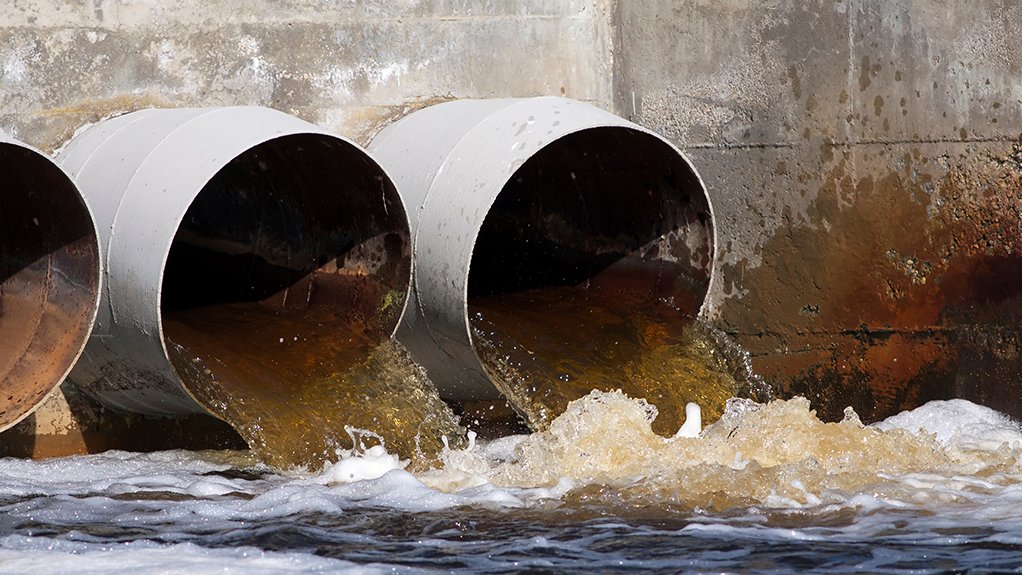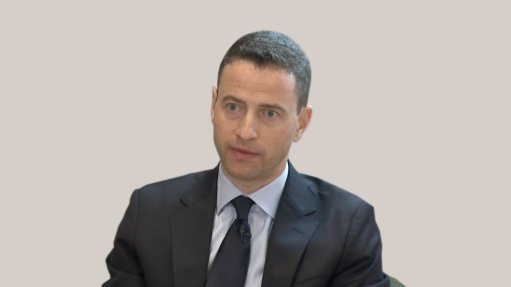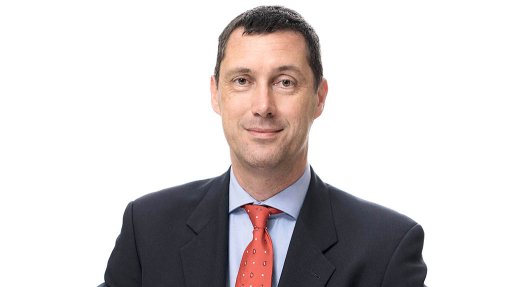Act compliance lacking in municipalities


MONITORING MATTERS The welcomed resurrection of the Blue and Green Drop Certification programme will again give the country insight into the status of its municipal sewage plants
Although the purpose and provisions of South Africa’s National Water Act, No 36 of 1998 and Water Services Act, No 108 of 1997 are prescribed, it is the observance and compliance with the obligations under these Acts that is wanting, says law firm Cliffe Dekker Hofmeyr environmental, mining and regulatory law director Margo-Ann Werner.
The country is dealing with poor water quality, specifically at a municipal level, with President Cyril Ramaphosa announcing the resurrection of the Blue and Green Drop Certification programmes during his State of the Nation Address in February to enable the Department of Water and Sanitation (DWS) to “intervene where water and sanitation services are failing”.
Municipalities are subject to the obligations under the Acts and must comply with the conditions of the licences required to operate wastewater treatment facilities. However, these facilities will only prove effective when there is proper monitoring of compliance with the law, to ensure accountability, through undertakings such as the Blue and Green Drop audits, among other measures.
“We are seeing the manifestation of poor management and resource allocation in municipalities regarding water infrastructure in the quality of the services being provided. There has been no public disclosure of monioring over the years since the Blue and Green Drop audits were stopped, ending informally when the last publicly available reports were published in 2014, with the results of audits in 2016 and 2017 were disclosed only to the municipalities assessed,” highlights Werner.
The effectiveness and enforcement of the National Water Act, which is aimed at achieving the sustainable use and protection of water resources for the benefit of all users, and the Water Services Act, which ensures that municipal water service providers supply South Africans with an appropriate standard of water services, come down to monitoring and disclosure.
With the welcomed resurrection of the Blue and Green Drop Certification programme, the country will again have insight into the status of its municipal sewage plants and actions required by municipalities to ensure water quality is of the required legal standard, adds Werner.
Ensuring Accountability
Despite the termination of the Blue and Green Drop audits, government has reprimanded the Dr Ruth Segomotsi Mompati district municipality, in the North West, where the state of the Vryburg wastewater treatment works has led to the recurring spillage of raw sewage into farms and communities’ streets since 2017.
Last year, the municipality faced being held in contempt of court for ongoing sewage spillages.
This followed noncompliance with a DWS directive and court order to resolve the issue, with the department claiming to have previously provided R80-million for the upgrade of water and sanitation services in the affected areas.
“Municipalities are not protected against enforcement action from the DWS, as they too have an obligation to ensure that their wastewater treatment practices abide by the law,” advises Werner, who believes that it is appropriate that the regulation of sewage and effluent falls under the National Water Act 36 of 1998 and not the National Environmental Management: Waste Act 59 of 2008, although there is a waste element.
“It is the contamination of the water resource that is of concern and the Act, being the overarching legislation protecting South Africa’s limited water resource, deals with how we manage that impact.”
However, owing to the overarching impact water pollution has on the environment in general, adds Werner, there is still a responsibility to observe the duties and principles under the overarching environmental legislation that is the National Environmental Management Act (Nema) 107 of 1998, with the offences under the National Water Act also being offences under Nema.
Private Water Discharge Monitoring
The discharge of treated process water from industrial complexes into the municipal sewage system is governed by wastewater and effluent by-laws, which municipalities are required to have in place to stipulate the standards with which companies must comply.
Conversely, treated wastewater that is discharged directly into the environment or a wastewater stabilisation pond are subject to specific requirements under the National Water Act, where a water-use licence is required.
Therefore, the manner and monitoring of water discharged differs depending on whether it is discharged into a municipal sewage system or into the environment.
At by-law level, an operator is generally subject to the provisions of the by-laws and where required, issued with an effluent permit by the municipality, subject to conditions relating to quality limits, monitoring and reporting requirements. The operator is, thus, required to sample the wastewater being generated to ensure that it complies with the municipal requirements, with municipalities also permitted to take samples during on-site inspections.
“This is important, as you can’t just discharge as you wish. The municipality needs to regulate the various inputs into its system because this water needs to be treated as best as it could be using the available infrastructure. Without regulation, highly polluted water may be discharged into the system, placing strain on the infrastructure,” notes Werner.
Where treated wastewater is discharged directly into the environment or into a stabilisation pond, companies have to apply for water-use licences to authorise such activity as per the National Water Act, depending on their discharge methods. The holder of such licence will be subject to monitoring and reporting requirements as contained in the conditions of its licence, with such conditions including the submission of independently conducted audits to the DWS for review. Non-compliance with the conditions of the licence and the Act can result in the suspension or withdrawal of the licence and enforcement action by the DWS.
Companies discharging wastewater into the municipal system face consequences, such as permit suspension or withdrawal, or fines, when found to be noncompliant with by-laws, which could result in operational stoppages. Non-compliance with such bylaws may also result in noncompliance with the National Water Act, which could see offenders imprisoned for up to ten years.
However, Werner notes that the acknowledgment of sustainable development and the importance of sustainable practices is being increasingly appreciated in the private sector.
“Companies are aiming to limit risk associated with environmental transgressions, such as contamination, which will hopefully lead to industries improving their environmental management, especially regarding water,” she states.
Article Enquiry
Email Article
Save Article
Feedback
To advertise email advertising@creamermedia.co.za or click here
Announcements
What's On
Subscribe to improve your user experience...
Option 1 (equivalent of R125 a month):
Receive a weekly copy of Creamer Media's Engineering News & Mining Weekly magazine
(print copy for those in South Africa and e-magazine for those outside of South Africa)
Receive daily email newsletters
Access to full search results
Access archive of magazine back copies
Access to Projects in Progress
Access to ONE Research Report of your choice in PDF format
Option 2 (equivalent of R375 a month):
All benefits from Option 1
PLUS
Access to Creamer Media's Research Channel Africa for ALL Research Reports, in PDF format, on various industrial and mining sectors
including Electricity; Water; Energy Transition; Hydrogen; Roads, Rail and Ports; Coal; Gold; Platinum; Battery Metals; etc.
Already a subscriber?
Forgotten your password?
Receive weekly copy of Creamer Media's Engineering News & Mining Weekly magazine (print copy for those in South Africa and e-magazine for those outside of South Africa)
➕
Recieve daily email newsletters
➕
Access to full search results
➕
Access archive of magazine back copies
➕
Access to Projects in Progress
➕
Access to ONE Research Report of your choice in PDF format
RESEARCH CHANNEL AFRICA
R4500 (equivalent of R375 a month)
SUBSCRIBEAll benefits from Option 1
➕
Access to Creamer Media's Research Channel Africa for ALL Research Reports on various industrial and mining sectors, in PDF format, including on:
Electricity
➕
Water
➕
Energy Transition
➕
Hydrogen
➕
Roads, Rail and Ports
➕
Coal
➕
Gold
➕
Platinum
➕
Battery Metals
➕
etc.
Receive all benefits from Option 1 or Option 2 delivered to numerous people at your company
➕
Multiple User names and Passwords for simultaneous log-ins
➕
Intranet integration access to all in your organisation



















